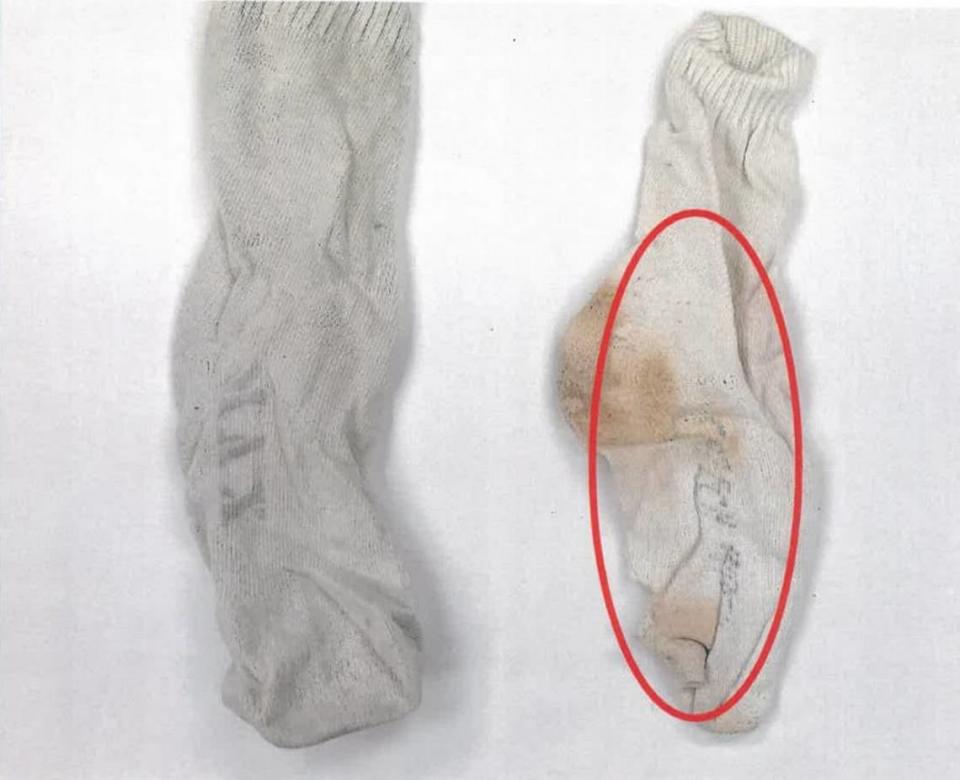Idaho death row prisoner Thomas Creech asks federal court to stop his execution
Three weeks before Idaho death row prisoner Thomas Creech is set to be executed, his attorneys are seeking a new clemency review after alleging in a federal lawsuit that prosecutors and the state parole board violated their client’s constitutional rights.
Creech, 73, has been incarcerated in Idaho for nearly 50 years following murder convictions for killing three men. The state parole board agreed to hold a hearing last month to consider dropping Creech’s death sentence to life in prison, which halted his prior scheduled execution late last year.
Following last month’s all-day clemency hearing, the Commission of Pardons and Parole deadlocked in a 3-3 vote, resulting in a denial of Creech’s request for the reduced sentence. The board’s seventh commissioner, Patrick McDonald, who could have broken the tie, recused himself from the hearing. Ashley Dowell, the parole board’s executive director, declined to disclose the reason for McDonald’s recusal.
Now, Creech’s attorneys with the nonprofit Federal Defender Services of Idaho are raising legal issues over that recusal and the prosecution’s use of “false statements and questionable evidence” at the clemency hearing, according to the lawsuit. They allege that the prosecution’s failure to provide them with notice of the evidence beforehand, and the parole board’s unwillingness to delay a decision while they investigated the allegations, violated Creech’s due process rights guaranteed under the 14th Amendment.
“Had seven commissioners been present for Mr. Creech’s hearing, as was supposed to be the case, then he would have had the chance to persuade one more person to vote for life,” the federal lawsuit read. “Instead, the prosecution only needed to win half the votes of the commissioners, while Mr. Creech had to win two-thirds.”

Gov. Brad Little, who has the final say on clemency decisions, issued a statement after the parole board’s ruling that he had “zero intention” of delaying Creech’s execution any longer. The next day, an Ada County judge reissued Creech’s death warrant and set his execution date for Feb. 28.
Creech was first convicted in Idaho of the November 1974 double-murder of Edward Thomas Arnold, 34, and John Wayne Bradford, 40, in Valley County. He was later convicted of the May 1981 murder of fellow prisoner David Dale Jensen, 23, while they were in the maximum security prison together in Ada County.
Jensen’s beating death, for which Creech pleaded guilty to first-degree murder, resulted in his current death sentence. In addition, Creech also was subsequently convicted of a murder in Oregon and another in California and is suspected in several others throughout the Western U.S.
Creech is classified as a serial killer under FBI guidelines and at points has claimed, including under oath, to have murdered as many as 42 people. Creech’s attorneys have said those numbers are far exaggerated.
Creech has avoided his scheduled execution 11 times during his decades in prison. Most recently, he did so again late last year when the parole board granted Creech the clemency hearing, which led to a stay of execution.
At the January hearing, Ada County Deputy Prosecutor Jill Longhurst presented information to the parole board that Creech also was guilty of the nearly 50-year-old cold case murder of Daniel A. Walker Jr., 21, in San Bernardino County, California, in October 1974. She said law enforcement in the Southern California community had positively identified Creech as the murderer.

Follow-up news releases from the Prosecutor’s Office about Creech’s clemency hearing stated that Walker’s cold case had now been “solved” and that an Ada County investigator was “instrumental” in providing evidence to the San Bernardino County Sheriff’s Office to connect Creech to the murder. The Sheriff’s Office has only said that its cold case detectives resumed their investigation in November after obtaining “additional information” about the murder, and later worked with Ada County to “corroborate intimate details” from past statements made by Creech about Walker’s murder.
Jensen murder weapon comes into question
At the clemency hearing, Longhurst also presented an image of a white sock that appears to include Creech’s name written in black marker. Creech used a sock filled with batteries to beat Jensen to death, but at times claimed he took the weapon away from Jensen and that his actions were in self-defense. The evidence, which Creech’s attorneys say has never before been produced by prosecutors, would instead seem to indicate that Creech developed the weapon using one of his own socks.
“In sum, the prosecution created the illusion of a new murder conviction as it prepared for the commutation hearing,” the federal lawsuit read. “Then, for the first time at the hearing, the prosecution revealed never-before-seen images of the murder weapon that mysteriously appeared as the prosecution prepared for the commutation hearing. … Then, the commission, once on notice of the prosecution’s due process violations, refused to allow Mr. Creech time to respond to the new, suspicious, and — at a minimum in regards to the Walker case — objectively false information from the prosecution.”

Dowell and the Ada County Prosecutor’s Office declined to comment Tuesday, citing pending litigation to the Idaho Statesman.
To remedy what Creech’s attorneys said were the prosecution’s “misrepresentations” and parole board’s failure to “comply with minimal due process requirements,” they requested that a federal judge issue a stay of execution, halting their client’s execution later this month. They also seek a new clemency hearing before the parole board to properly respond to the allegations that Creech murdered Walker.
Separately, Creech has two state appeals that were argued on an expeditious timeline before the Idaho Supreme Court on Monday. Justice Colleen Zahn recused herself from the hearings based on her prior role working as a prosecutor in the attorney general’s office, state courts spokesperson Nate Poppino told the Statesman. In her place sat senior Justice Roger Burdick.
One of Creech’s appeals argues that he had ineffective legal counsel during sentencing for the Jensen murder because his attorneys did not present his history of childhood physical and sexual abuse and traumatic head injuries to the judge. The other argues that Creech’s death sentence is unconstitutional because a judge imposed it rather than a jury, which the U.S. Supreme Court amended through case precedent in 2002.
Creech’s attorneys also requested the Idaho Supreme Court issue a stay of execution while they pursue his full slate of appeals, which was opposed by LaMont Anderson, chief deputy attorney general for the office’s capital litigation unit. The five-member court did not issue its rulings on the stay, nor the two appeals, as of Tuesday night.

